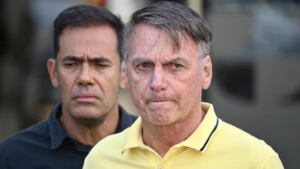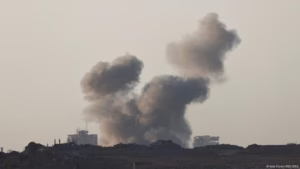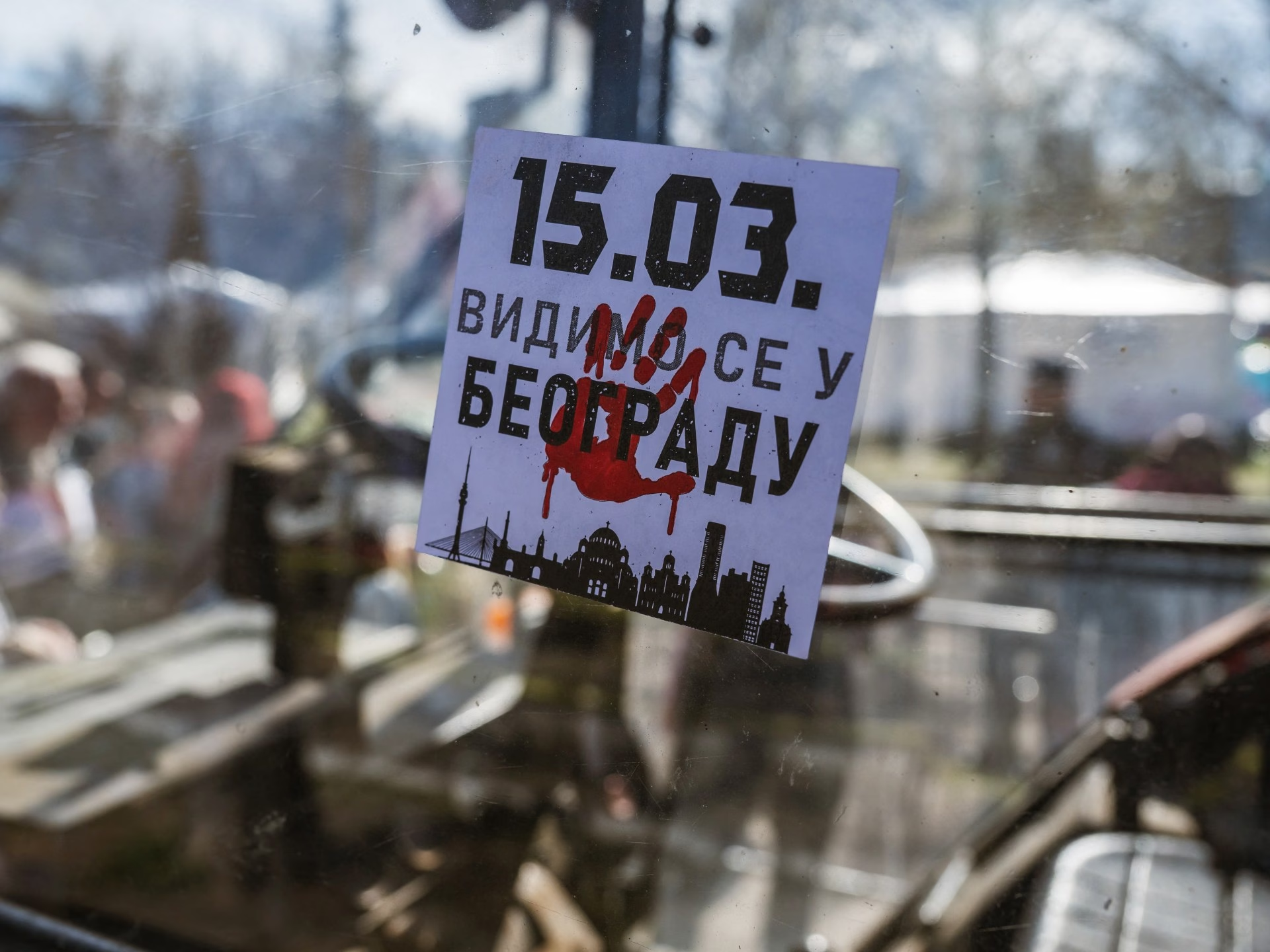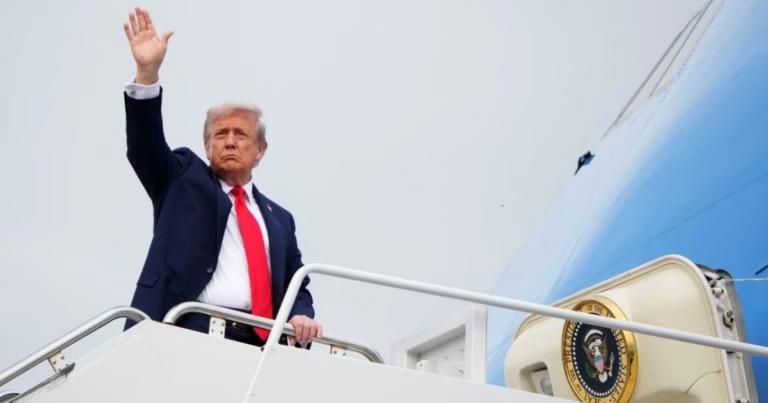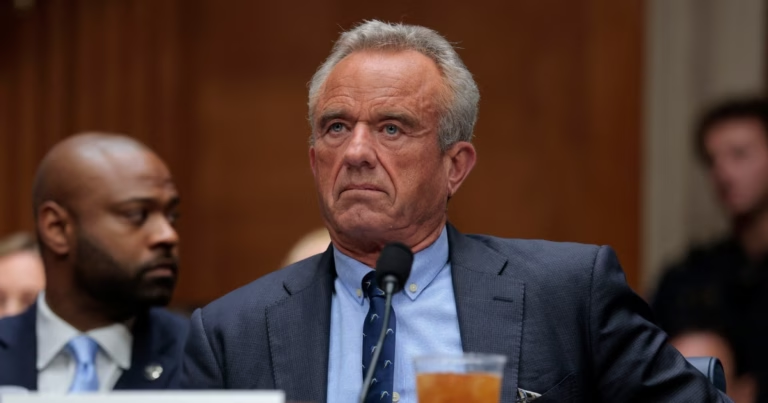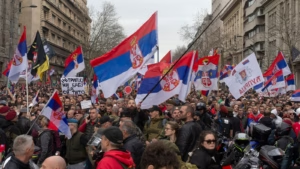At least 13 individuals have been charged in relation to the roof collapse at Novi Sad’s railway station in November.
Serbian anticorruption protesters, riot police, and supporters of President Aleksandar Vucic have clashed in central Belgrade amidst the largest antigovernment rallies in years, with tens of thousands participating.
Daily student protests commenced in December following the deaths of 15 individuals when a roof collapsed at a railway station in Novi Sad in November, which critics attribute to corruption under Vucic.
Before Saturday’s rally, scheduled to commence at 4 PM (15:00 GMT) from the National Assembly and ending at Slavija Square, sporadic clashes occurred, and police were deployed in riot gear.
Thousands of veterans and bikers supporting the students observed a 15-minute silence to honor the Novi Sad victims at the time of the roof collapse.
Protesters carried banners and chanted phrases expressing dissatisfaction with Vucic’s leadership and advocating for justice.
“We came for justice. I hope that after this protest, things will change,” remarked Milica Stojanovic, a biology student in Belgrade.
While Saturday’s protest is expected to remain peaceful, violent incidents occurred beforehand, including a car ramming protesters, injuries from an attack, and several detentions following damage to equipment.
Students urged those participating to maintain composure and avoid targeting institutions or those with differing opinions.
They also decided to relocate the protest stage to avoid escalations.
So far, prosecutors have charged at least 13 individuals in connection to the collapse, and the government has announced an anticorruption campaign, though tensions have risen due to aggressive media coverage and accusations by Vucic concerning potential “coup” action.
Vucic has declared his refusal to be swayed by protests, emphasizing his role as president and instructing police to handle troublemakers.
Daily student protests commenced in December following the deaths of 15 individuals when a roof collapsed at a railway station in Novi Sad in November, which critics attribute to corruption under Vucic.
Before Saturday’s rally, scheduled to commence at 4 PM (15:00 GMT) from the National Assembly and ending at Slavija Square, sporadic clashes occurred, and police were deployed in riot gear.
Thousands of veterans and bikers supporting the students observed a 15-minute silence to honor the Novi Sad victims at the time of the roof collapse.
Protesters carried banners and chanted phrases expressing dissatisfaction with Vucic’s leadership and advocating for justice.
“We came for justice. I hope that after this protest, things will change,” remarked Milica Stojanovic, a biology student in Belgrade.
While Saturday’s protest is expected to remain peaceful, violent incidents occurred beforehand, including a car ramming protesters, injuries from an attack, and several detentions following damage to equipment.
Students urged those participating to maintain composure and avoid targeting institutions or those with differing opinions.
They also decided to relocate the protest stage to avoid escalations.
So far, prosecutors have charged at least 13 individuals in connection to the collapse, and the government has announced an anticorruption campaign, though tensions have risen due to aggressive media coverage and accusations by Vucic concerning potential “coup” action.
Vucic has declared his refusal to be swayed by protests, emphasizing his role as president and instructing police to handle troublemakers.
